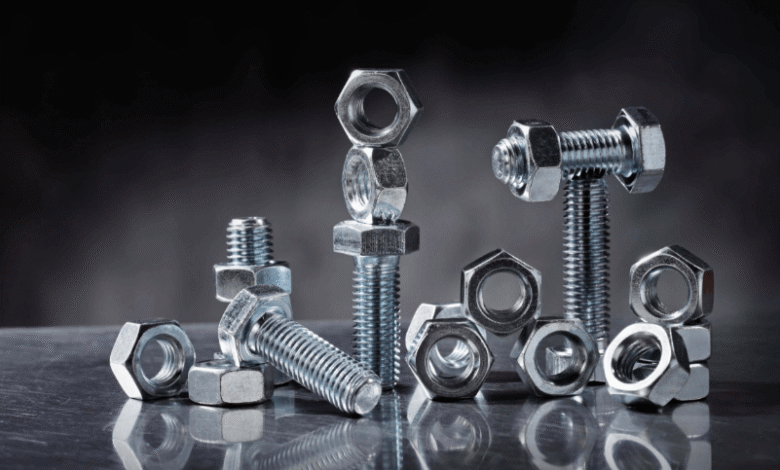The Essential Role of a nuts manufacturer in Modern Manufacturing and Construction

Nuts, along with bolts and screws, form the backbone of mechanical assembly and structural integrity in virtually every industry. Whether you are working in automotive, aerospace, electronics, construction, or consumer goods, a reliable nuts manufacturer plays a crucial role in ensuring the quality, safety, and durability of your products.
This article explores the significance of nuts, the manufacturing process, key factors to consider when choosing a nuts manufacturer, and current trends influencing the industry.
What is a nuts manufacturer?
A nuts manufacturer is a company specialized in producing nuts — the small but vital fasteners that pair with bolts or screws to hold components together. Nuts come in various shapes, sizes, and thread types, designed for different applications requiring strength, precision, and sometimes specific environmental resistance.
Manufacturers may offer standard nuts like hex nuts, lock nuts, wing nuts, and flange nuts, or produce custom nuts tailored to particular industrial requirements.
The importance of quality nuts in assembly
Nuts may seem simple, but their quality directly impacts the reliability of the entire assembly. Inferior nuts can cause loosening, material fatigue, or even catastrophic failure. On the other hand, high-quality nuts from a trusted manufacturer ensure:
- Secure fastening: Properly matched threads and precise tolerances keep components tightly joined.
- Resistance to loosening: Features such as nylon inserts or locking designs prevent nuts from coming undone under vibration.
- Corrosion protection: Surface treatments and materials help nuts withstand harsh environments, extending service life.
- Safety: Reliable nuts reduce the risk of accidents caused by structural failures.
See also: Codewave’s Human-Centric Approach to Technology Solutions
Common types of nuts produced by a nuts manufacturer
1. Hex Nuts
The most common type, with six sides for easy wrenching.
2. Lock Nuts
Designed to resist loosening, often incorporating nylon inserts or deformed threads.
3. Wing Nuts
Equipped with “wings” for hand tightening without tools.
4. Flange Nuts
Feature an integrated flange to distribute pressure over a wider area.
5. Cap Nuts
Have a domed top to cover exposed bolt ends for safety and aesthetics.
6. Square Nuts
Four-sided nuts, often used in machinery for better grip.
7. Custom Nuts
Tailored to specific thread sizes, materials, and finishes as per client requirements.
The manufacturing process of nuts
The journey of nuts manufacturing involves several key steps:
1. Material Selection
Choosing raw materials such as carbon steel, stainless steel, brass, or alloys depending on the application’s strength and corrosion resistance needs.
2. Cutting and Shaping
Steel rods or wire are cut into blanks and shaped using cold forging or hot forging techniques to form the nut body.
3. Threading
Internal threads are created using tapping or rolling processes, ensuring precise fit with bolts or screws.
4. Heat Treatment
Nuts may be heat-treated to enhance hardness and strength.
5. Surface Treatment
Coatings such as zinc plating, galvanization, black oxide, or special finishes are applied to prevent rust and wear.
6. Quality Inspection
Dimensional checks, thread gauge testing, and mechanical testing ensure compliance with specifications.
7. Packaging and Delivery
Nuts are packaged securely to prevent damage during transport and simplify inventory management.
Factors to consider when choosing a nuts manufacturer
Quality Standards
Look for manufacturers adhering to international standards like ISO 9001, ASTM, or DIN to ensure product consistency and reliability.
Production Capability
Assess if the manufacturer can handle your volume requirements, from small custom runs to mass production.
Material Variety
A manufacturer offering a broad selection of materials and finishes can better meet diverse application needs.
Customization
The ability to produce custom nuts per exact specifications is valuable for specialized industries.
Lead Time and Delivery
Reliable supply schedules and flexible logistics minimize production downtime.
Technical Support
Manufacturers who provide engineering support can assist in selecting or designing nuts that optimize assembly performance.
Pricing
Competitive pricing balanced with quality ensures cost-effective procurement.
Industry applications relying on nuts manufacturers
- Automotive: Nuts used in engines, chassis, and interiors require precision and durability.
- Aerospace: Specialized nuts withstand extreme temperatures and vibrations.
- Electronics: Miniature nuts with exact tolerances are essential for compact devices.
- Construction: Heavy-duty nuts provide structural stability in buildings and infrastructure.
- Medical Devices: Biocompatible nuts are used in surgical instruments and implants.
Trends shaping the nuts manufacturing industry
Sustainability
Eco-friendly materials and processes reduce environmental impact, with manufacturers focusing on recyclable alloys and waste reduction.
Advanced Materials
Use of titanium, specialty alloys, and composites provides higher strength-to-weight ratios for aerospace and high-performance applications.
Automation and Industry 4.0
Smart manufacturing systems improve quality control, reduce errors, and increase production efficiency.
Customization on Demand
Rapid prototyping and flexible manufacturing technologies allow quicker turnaround for custom nuts.
Conclusion
The role of a nuts manufacturer is integral to the success of countless industries. High-quality nuts ensure secure assemblies, enhance safety, and improve product longevity. Selecting the right manufacturer involves considering factors such as quality certifications, production capabilities, customization options, and delivery reliability.
Investing time and resources into partnering with a reputable nuts manufacturer can yield significant long-term benefits — reducing costs associated with failures and enhancing the overall value of your products.





